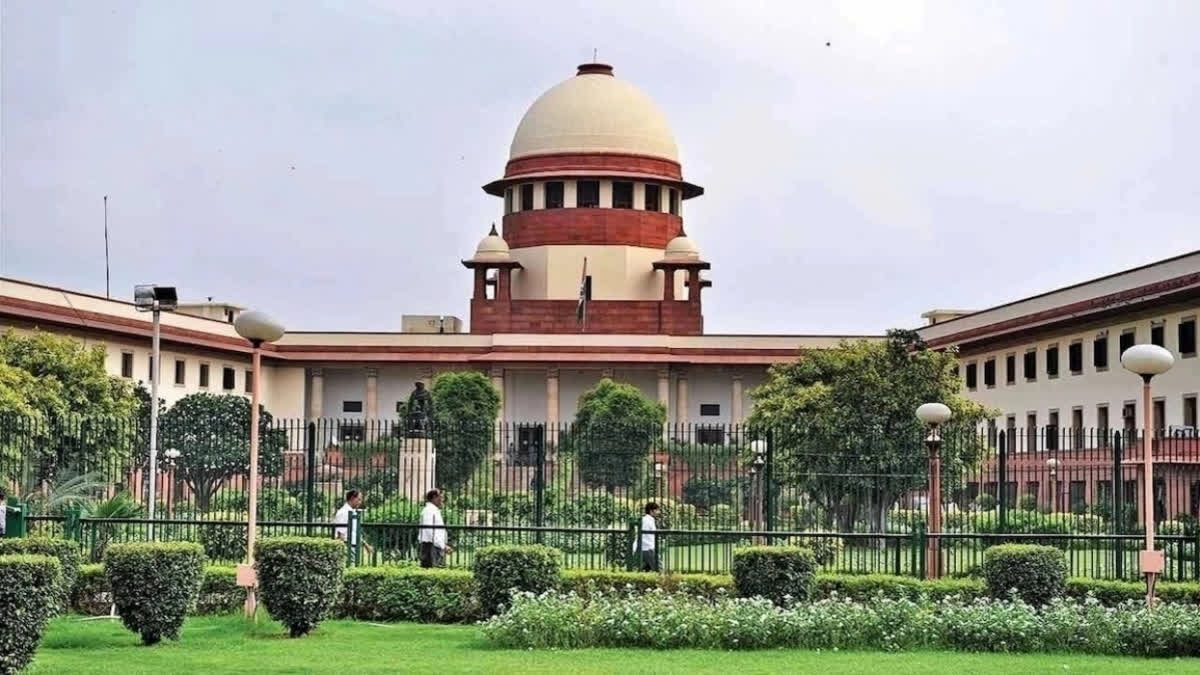New Delhi: The central government on Wednesday, July 31, vehemently opposed in the Supreme Court a plea of the mineral-rich states seeking refund of the royalty levied by it on mines and mineral-bearing land since 1989.
Solicitor General Tushar Mehta, appearing for the Centre, submitted before a nine-judge bench led by Chief Justice of India (CJI) DY Chandrachud that Madhya Pradesh and Rajasthan, which are ruled by the BJP, wanted the judgment to be made applicable prospectively.
The central government stressed that any order asking it to pay the alleged dues with retrospective effect will have a “multipolar” impact. Mehta argued that applying the judgment retrospectively will have an impact on several industries, including the PSUs, and stressed that it will open the floodgates of new litigations.
Emphasising on justice being done for both sides, he said the court may consider saying that neither the state government may demand any levy retrospectively nor the private parties or PSUs who have paid would seek any refund of the money.
A nine-judge bench led by CJI and comprising justices Hrishikesh Roy, Abhay S Oka, JB Pardiwala, Manoj Misra, BV Nagarathna, Ujjal Bhuyan, Satish Chandra Sharma and Augustine George Masih, reserved its order on the issue of whether royalty levied by the Centre on mines and mineral-bearing lands since 1989 will be refunded to the states.
During the hearing, senior advocate Rakesh Dwivedi, representing the Jharkhand Mineral Development Authority, made submissions in favour of making the judgment retrospective. On the aspect of financial implications if the judgment were to apply retrospectively, Dwivedi suggested that past arrears could be paid in instalments.
Senior advocate Vijay Hansaria, appearing for Uttar Pradesh, argued that the high court had upheld the state levy and now, the apex court has also approved it, and added that all companies except two companies have been paying the state government's tax.
Senior advocate Harish Salve, representing Mahanadi Coalfields, argued that the past levy demands would be in excess of the net worth of many companies and application of the judgment retrospectively would push companies to bankruptcy.
On July 25, a nine-judge bench in the Supreme Court, by majority, ruled that states’ have legislative competence to levy taxes on minerals and mineral-bearing lands. The judgment gave a huge revenue boost to mineral-rich states.
Multiple companies involved in mining activities support Centre's view on refund of royalty to mineral-bearing states. On July 25, the bench led by CJI DY Chandrachud held that royalty is not a tax. “Royalty is a contractual consideration paid by the mining lessee to the lessor for enjoyment of mineral rights.
The liability to pay royalty arises out of the contractual conditions of the mining lease. The payments made to the government cannot be deemed to be a tax merely because the statute provides for their recovery as arrears”, said the CJI. However, Justice BV Nagarathna had dissented and said the Centre has the power to levy royalty.
Read More:



